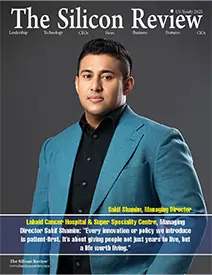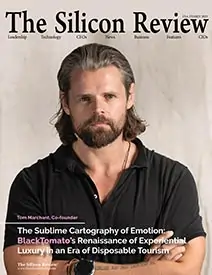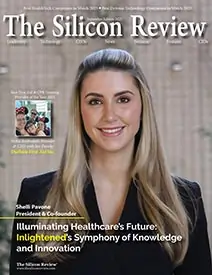>>
Technology>>
Artificial intelligence>>
Doomsday Clock Ticks to Histor...Doomsday Clock Ticks to Historic 89 Seconds: Unchecked AI and Bioengineering Risks Push Humanity to the Brink
The Silicon Review
29 January, 2025
The symbolic Doomsday Clock has been set to 89 seconds to midnight—the closest to global catastrophe in its 77-year history—as scientists escalate warnings.
In a landmark update, the Bulletin of the Atomic Scientists emphasized that AI-enabled weapons systems and synthetic biology now rival nuclear proliferation and climate disasters as existential threats. The 2025 adjustment marks the first time the Clock has moved closer to midnight since 2023, with researchers citing a “perfect storm” of destabilizing innovations. AI-driven military tools, such as autonomous drones capable of targeting without human intervention, are being rapidly deployed by over a dozen nations, according to recent intelligence assessments. Meanwhile, breakthroughs in genetic engineering have made it alarmingly simple to reconstruct or modify deadly pathogens, with lab-created viruses posing unprecedented biosecurity risks. The Bulletin’s statement singles out corporate and governmental complacency, noting that regulatory frameworks lag far behind technological advances. For instance, private startups specializing in defense AI have secured billions in global contracts this year alone, yet fewer than 20% adhere to international ethical guidelines for autonomous weapons. Similarly, synthetic biology firms face minimal oversight despite tools like CRISPR-Cas9 enabling genetic edits once deemed science fiction.
“We’re no longer in an era of hypotheticals,” said Dr. Rachel Whitmore, lead researcher at the Bulletin. “An AI miscalculation could spark a chain reaction of conflict, while a single engineered virus might evade existing vaccines entirely. These aren’t distant scenarios—they’re unfolding now.” Industries face dual pressures: Investors are pouring capital into AI defense tech and biotech startups, with markets projected to exceed $40B collectively by 2028. However, companies ignoring risk mitigation, such as ethical AI audits or pathogen-screening protocols, risk sanctions, supply chain disruptions, and public backlash. Insurers like Lloyd’s of London now demand biosecurity certifications for lab coverage, while NATO-aligned governments prioritize contractors with transparent AI governance.
For executives, the Clock’s warning is a strategic mandate. Firms must integrate “fail-safe” protocols for high-risk R&D, collaborate on global security standards, and publicly commit to ethical innovation. Those who act decisively will dominate emerging markets; those who delay risk obsolescence—or worse, catalyzing disaster.


_2025-10-02_10-21-48.webp)



